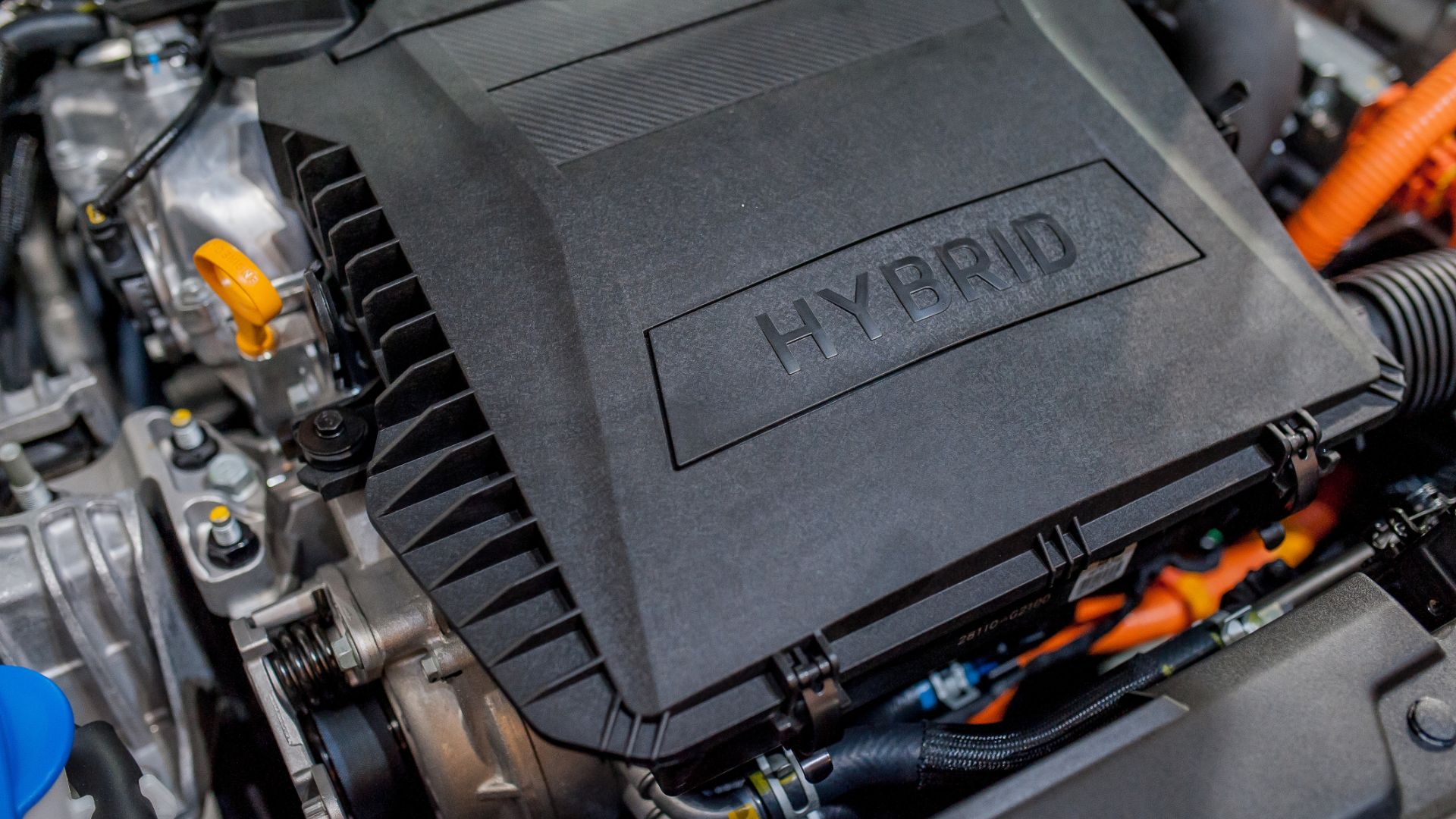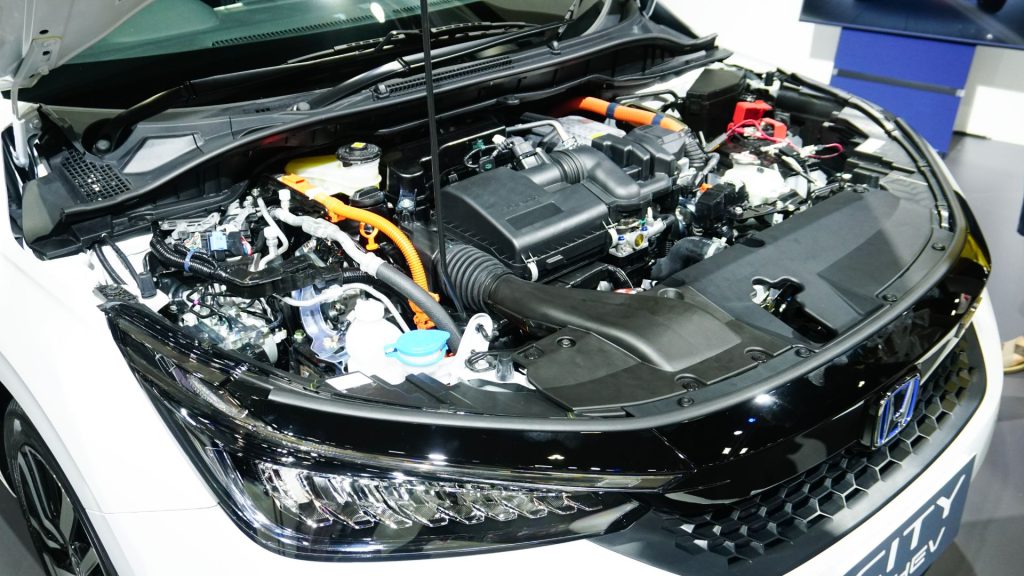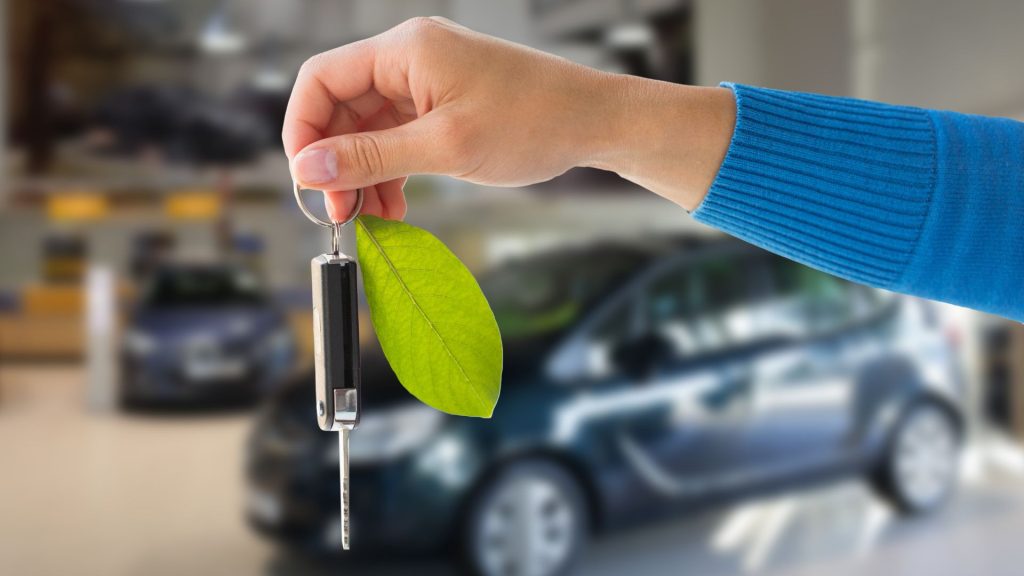Pros and cons of hybrid cars — are they worth it?
Evaluate the advantages and disadvantages of hybrid cars.

In the entire automotive industry, rare are concepts that draw as much attention as hybrid cars. Not all drivers are familiar with how they work, and many car guys consider them an unnecessary category between gasoline and electric cars.
Still, knowing the pros and cons of hybrid cars can drastically change your opinion, and that’s what our team looks to accomplish through this guide. Once you’ve got all the information, you can effectively decide whether these cars could suit your driving needs, or whether you should just skip them from consideration.
What are hybrid cars and how do they work?

As their name suggests, hybrid cars represent a mix of a regular gasoline internal combustion engine and an electric power. Based on their type, there’s an electric motor that varies in size, and the size and capacity depend on the range.
So, most hybrid cars can be driven on electric power alone, but the range drastically differs. The arrangement of the engine and an electric motor can be set differently. Perhaps the best example is Toyota Prius, as one of the most popular hybrid cars in the US.
Its hybrid engine combination is often coupled with a CVT transmission, giving up a sense of a modernized car. However, it doesn’t run on electricity alone, as the gasoline-powered engine also adds up to the power output.
Prius is a regular hybrid, which means it doesn’t have to be charged like electric cars. Instead, it uses a combination of an internal combustion engine and an electric motor. The electric motor can go up to 25 miles in some trims like the Prius Prime, but it can run on a gasoline-powered engine once the electrical power cuts out.
At this point, the electric motor gets charged via regenerative braking, which is when the energy produced by the brake pressure gets transferred to the electric motor. It, therefore, charges it, and you can get some electric power autonomy again.
Types of hybrid cars

Prius is a regular hybrid, and it doesn’t require charging the electric motor like the battery of fully electric vehicles. Still, what about other hybrid vehicle types? Well, there are several different types of hybrids you should be aware of:
- Regular hybrids
- Mild hybrids
- Plug-in hybrids
So, regular hybrids like Prius use both an internal combustion engine and an electric motor. This way, you get low fuel consumption when the car is running solely on electric power, and you don’t have to bother charging it. But, what about the remaining types like mild hybrids and plug-in hybrids?
This is where you need to pay attention if you are considering buying a hybrid car. A mild hybrid mostly runs regularly on its gasoline-powered engine, and it just uses the electric motor to relieve the engine and power electrically demanding features.
So, the electric motor assists with additional power output when you are starting from a dead stop, or in hard acceleration. During other times, you just drive regularly and the electric motor is charged by the internal-combustion engine. However, plug-in hybrids are different than regular and mild hybrids.
They mostly run on electric power, since they come with a high-capacity electric motor. While that’s good for your fuel consumption, you still have to charge the electric motor just like on fully electric vehicles. Don’t worry, though – once your plug-in hybrid runs out of electric power, it will use fuel and run on a gasoline engine.
Main benefits of hybrid cars

Now that you know a bit of background on hybrid cars and their types, we’ll discuss their benefits as a vehicle category as a whole. You can just go ahead and pick a reasonable type of hybrid vehicle for your needs based on the benefits listed:
- Highly fuel-efficient solution
- Eco-friendly drive
- Extensive warranty packages
- Reduced engine maintenance
Of course, many of these benefits are type-specific, but the major advantage of hybrid cars is that you can find the version that suits your driving needs.
You’ll save up on fuel
If having a lower fuel consumption is important for you, you can just pick a plug-in hybrid with a larger mileage range on an electric motor alone. On the other hand, even if you don’t wish to bother charging the battery, and still wish to save up on fuel, you can even go with a regular hybrid.
Regular hybrids are often divided into two major subcategories – parallel hybrids and series hybrids. In a parallel hybrid, you can select the main powertrain – these can run on a gasoline engine, electric motor, or a combination of the two. You just pick your preference and the gasoline engine and regenerative braking will power up the electric motor.
For a series hybrid, you’ll mostly run on electric power while the gasoline engine simply generates the electric motor. So, this is the most cost-effective way of driving and saving up on fuel besides getting a fully electric car. The best thing is – even if your electric motor loses charge, you can still run on an internal combustion engine for a while longer.
It’s a more environment-friendly way of driving
Driving a hybrid car provides a more eco-friendly way of driving, and it’s mainly because you won’t be using that much fuel anymore. So, the gas emissions are reduced, and running on electric energy won’t hurt your environment.
While these are not as eco-friendly as fully electric cars, they still greatly reduce gas emissions and you’ll be making one step further toward protecting your environment.
Great warranty offers
You’ll rarely see a manufacturer’s warranty on the powertrain with gasoline-powered cars that matches that of a hybrid car. Back when these vehicles were a newly discovered type, manufacturers needed a way to persuade customers into trying them.
Many drivers were simply skeptical, and now that feeling is long gone as you have up to 8 years of warranty to back up your entire powertrain. So, you at least won’t get any headaches with a hybrid system during these 8 years of service, which is a great bargain.
Less need for engine maintenance
Since internal combustion engines in a hybrid system aren’t as active as those in gasoline-powered cars, you’ll need less frequent oil changes and engine maintenance. Of course, the engine won’t work if you don’t occasionally swap worn-off spark plugs and check the oil level, but it’s not as demanding as in a regular vehicle.
That’s the beauty of hybrid cars – you still get to live through some sort of an old-school appeal when switching to the internal combustion engine. Still, you’ll drive in a more eco-friendly way and reduce emissions and engine maintenance as well.
Downsides of hybrid cars
Not everything can be bright and shiny in life, and the same goes for hybrid vehicles. While they reduce gas emissions and help you get a more sustainable way of driving, they do have a few downsides:
- Not as engaging as gasoline-powered cars
- Higher total costs after the warranty period
- More complex repairs
So, if you are an automotive enthusiast, chances are that you won’t be drawn into liking hybrid cars that much. They don’t offer performance options as you get with a powerful V8 petrol machine, and you can’t expect a remarkable 0 to 60 launch performance.
The whole point is to focus on an electric motor more, but these are much less capable in hybrid cars than in modern electric vehicles.
Consider the costs
We mentioned that you get an extended warranty on a hybrid car, and that’s one of the main benefits. However, once the warranty period ends, you might be faced with more complex and expensive repairs when compared to a regular gasoline-powered vehicle.
The hybrid system is more complex as it has both an internal-combustion engine and an electric motor, so it might take more time and effort for your mechanic to fix potential issues. Hybrid cars are also more expensive than gasoline vehicles upfront.
Our take
Well, there you have it – we went over some of the main pros and cons of hybrid cars to help you decide if this type of vehicle suits your needs. Overall, they do have more ups than downs, but it’s up to every driver to decide.
If you are looking for something on the verge of fully electric cars, but you still don’t want to give up on traditional internal-combustion engines, a hybrid combination might be the best choice.
What are the disadvantages of hybrid cars?
Some disadvantages of hybrid cars include higher upfront prices, more complex repairs after the warranty period, and having to charge a plug-in hybrid every 50 miles or so.
What is the biggest problem with hybrid cars?
The biggest problem with hybrid cars is that you won’t get much autonomy on electric power alone, since most hybrids are capable of passing 20 to 80 miles on a single charge without using a petrol engine.
Is it better to get a hybrid or a regular car?
It all depends on your needs and what you aim to achieve. Hybrid cars are great eco-friendly vehicles if you only drive a short distance every day. On the other hand, regular cars are cheaper upfront, and they offer you a choice between a performance vehicle and a fuel-efficient option.
Is it worth buying a hybrid car?
Yes, it’s worth buying a hybrid car, especially if you only need to cover short distances driving from home to work. You’ll save up on fuel and it’s a more eco-friendly way of driving.